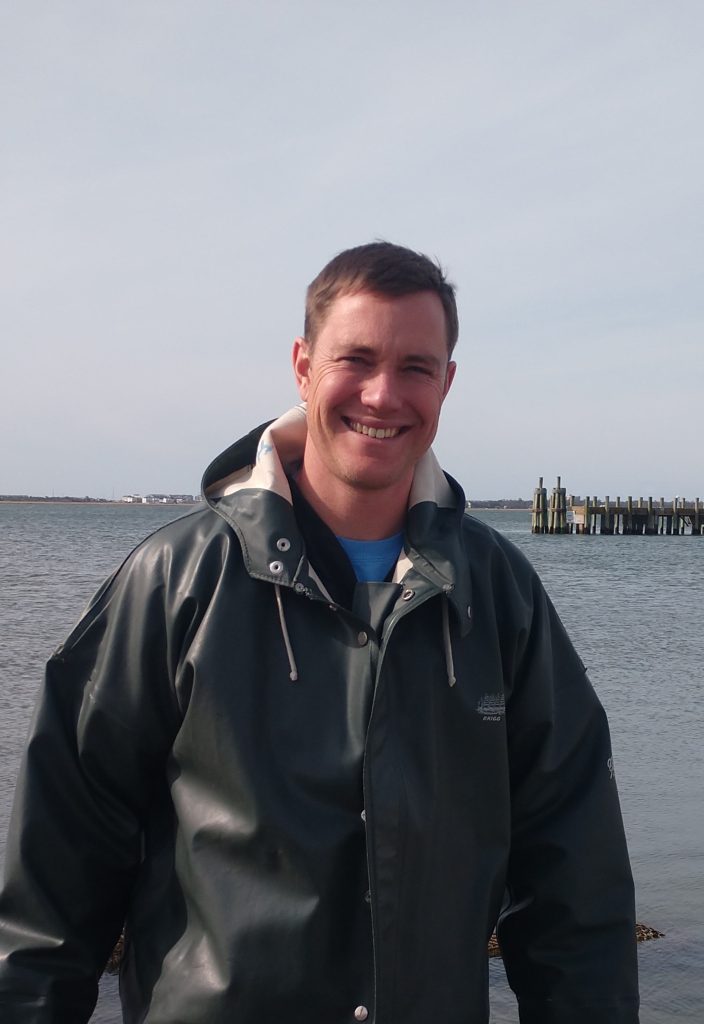
Jonathan Lucas spent ten years as a Marine Corps officer, stationed on both the East and West Coasts and traveling to twelve countries including Afghanistan. A couple years ago he made the big decision to completely change careers. He is currently an M.S. student in the UNC Marine Sciences department, conducting research on oyster population dynamics in eastern North Carolina estuaries.
What is the biggest difference you’ve noticed in transitioning from military life to civilian life?
Showing up on time, while still important, doesn’t have quite the same emphasis!
What is something you wish you had known before moving to Chapel Hill?
I actually spend most of my time away from Chapel Hill. For my research, I am located on the coast at the UNC Institute of Marine Sciences (IMS). IMS is less than an hour away from Camp Lejeune, NC, where I was stationed for my last tour of duty in the military. So, in many ways, I don’t feel like I moved that far.
What is an important lesson that you learned in the military that has helped you in grad school?
The immediate answer that comes to mind is personal discipline, organization, time management in approaching any kind of work project or responsibility.
On a deeper level (especially through four international deployments) I think I developed a larger perspective on the world around me, and refined what goals I want to pursue with my life. This includes gaining perspective on challenges faced by people and ecosystems in many parts of the globe, and an appreciation for the value of the educational, career, and life opportunities that we have in the United States.
What made you choose UNC/NC when deciding on a program/place to study?
I could really tell I would enjoy the community in the Marine Sciences department, and in the laboratory where I work. It’s a first-rate education at a place I knew I would be happy to be a part of. I am able to study and ask interesting scientific questions amongst a group of world class professors and peers. I also lived in North Carolina for a few years prior to coming to UNC, and think it is a great state with plenty to do.
How will your Carolina degree help you make a difference in the world?
By immersing me in a new field of learning, and introducing me to a great group of professionals, my time at Carolina will enable me to approach current scientific challenges like habitat degradation, declining fish stocks, and rising sea levels with a broad and relevant perspective.
